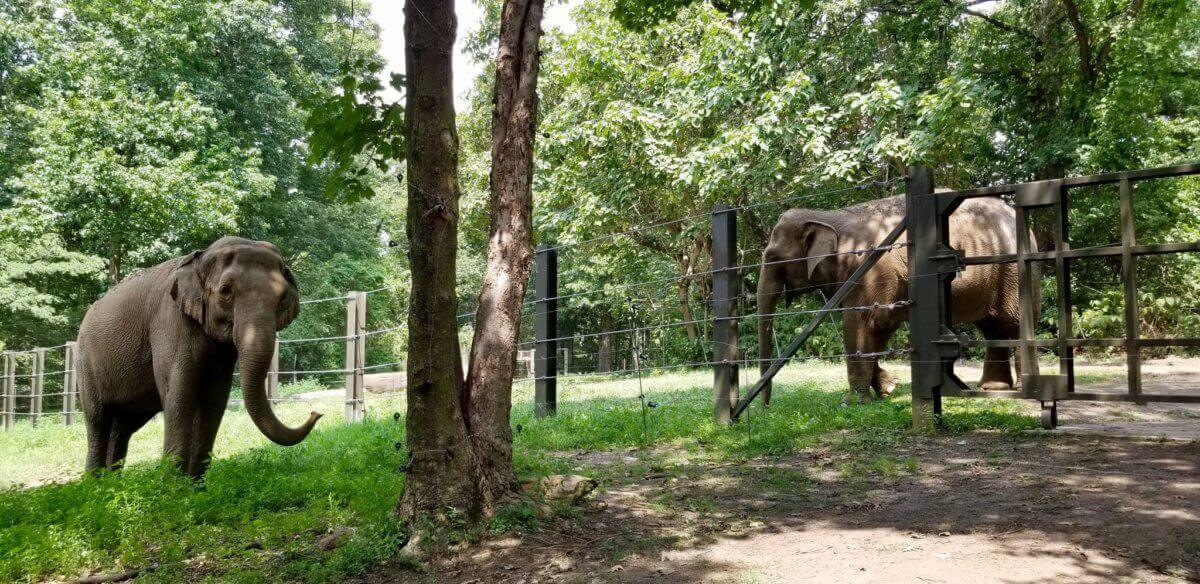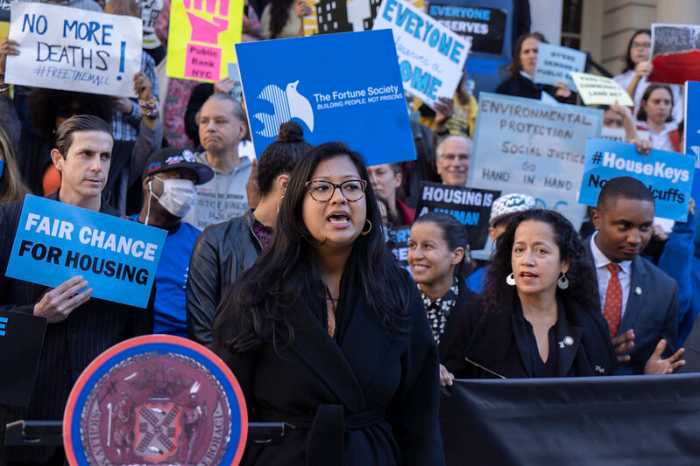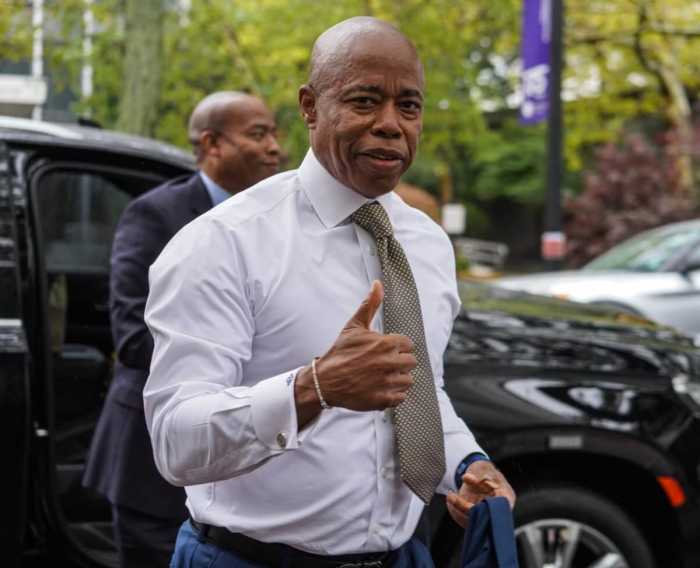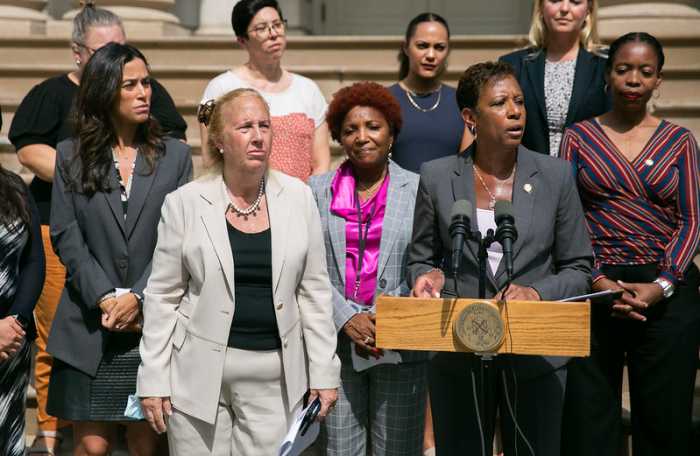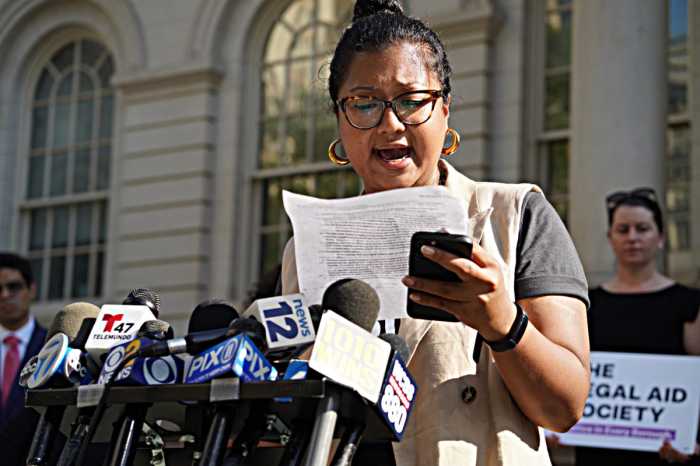Animal advocates clamoring for the release of the Bronx Zoo’s Happy the Elephant from its enclosure had been dealt a major legal defeat from the state’s highest-ranking court, the New York Court of Appeals last summer. The matter of Happy — who along with Patty is one of two Bronx Zoo elephants— according to concurring judges, was one for the state Legislature.
But now, the New York City Council is looking to get involved and could set a precedent — with the nation’s first-ever elephant captivity ban — if newly-proposed legislation from Brooklyn’s Progressive Councilmember Shahana Hanif is successful.
Hanif’s bill would prohibit elephants to be kept or constrained in enclosures throughout the city unless certain conditions were met.
The conditions outlined in the bill — which the Bronx Times analyzed before a Thursday press conference to introduce the new legislation — stipulates a legal elephant enclosure to include 15 acres per elephant, a cohabitation with other elephants and a habitat that can mimic the elephant’s natural surroundings.
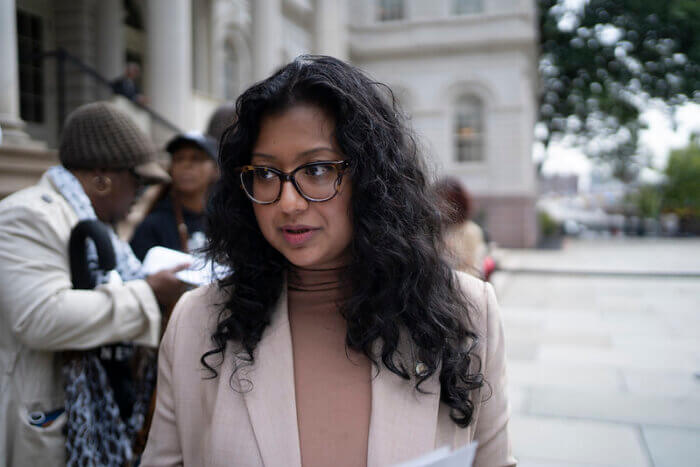
The bill would also prevent elephants in enclosures to be used for educational or commercial exhibits, and requires the owners of an elephant enclosure to have a permit and license to do so, which would be conditional based on meeting the aforementioned conditions set forth in the bill.
The Wildlife Conservation Society (WCS), which operates the zoo, have long-stated in prior statements that Happy and Patty are well cared for by the Bronx Zoo. The WCS, which manages four New York City wildlife parks in addition to the Bronx Zoo, has never faced charges of abuse against their elephants.
Patty lives in an adjacent enclosure separated from Happy by a fence, as the two do not get along, according to the zoo.
“There have been millions of words written about this case by the media fascinated by the possibility of granting personhood to animals. At the Bronx Zoo, we are focused on what is best for Happy, not in general terms, but as an individual with a unique and distinct personality,” said the WCS in a previous statement regarding Happy.
The NonHuman Rights Project (NhRP), who were the main drivers of legal efforts to release Happy because of its ability to recognize itself in a mirror self-recognition test, hope the bill’s introduction prompts the Bronx Zoo to release both elephants to a sanctuary.
“Another goal in this legislative effort is to set a precedent that elephants should not be held in captivity, and that it’s something that New York City does not support,” said Courtney Fern, NhRP’s director of government relations, to the Bronx Times on Wednesday. “This isn’t meant to be an attack on the Bronx Zoo. But more an effort to make sure we aren’t keeping elephants in conditions that affect their way of life.”
If passed, the bill would become law 90 days thereafter, upon signature by Mayor Eric Adams. According to the NhRP, the Bronx Zoo could still house Happy and Patty if they comply with the stipulations.
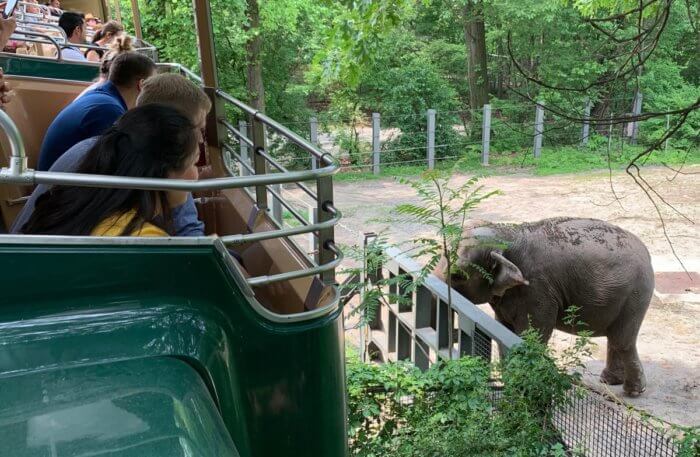
Happy was caught in the wild in 1971 and sold for $800 to a defunct California-based zoo. In 1977, proprietors relocated Happy and five other elephants to circuses and zoos across the U.S., with Happy and another elephant, Grumpy, sent to the Bronx Zoo to be part of the then newly created Wild Asia Monorail exhibit.
In 2002, the Bronx Zoo had to euthanize Grumpy after an attack from Patty and another elephant. The zoo separated Happy from Patty, before Happy received another companion Sammie, who soon died of kidney failure.
In 2006, the Bronx Zoo announced no further elephants would be acquired, a measure taken by other zoos after calls from the public and animal experts stated that elephants do not belong in captivity thus affecting their natural behaviors as social creatures.
Science has long warned zoos of the negative effects that captivity has on elephants, who are social herd animals.
With change brewing in the Court of Appeals, Happy the Elephant’s case may live to see another day
Studies suggest the same deleterious effects that social isolation has on the human brain — such as the mental health impact heightened during the pandemic — also effects elephants. And cramped conditions can cause arthritis or other skin problems, animal advocates say.
Scant federal laws protect wild animals from captivity in aquariums, circuses, theme parks and zoos in the U.S. There is the Animal Welfare Act (AWA), adopted in 1966, that protects warm-blooded animals who are bred for commercial sale, used in research, transported commercially or publicly for exhibition by animal carriers, handlers, dealers, breeders and exhibitors.
While elephants, as well as lions, bears and nonhuman primates fall under this exception, but does not apply to birds of any feather, farm animals used for food or fiber and coldblooded species like amphibians and reptiles. AWA sets a minimum standard of care for animals under zoo ownership.
Advocates pushing for Happy the Asian elephant’s release encountered a blow to their longstanding legal effort when the Court of Appeals voted 5-2, on June 14, 2021 to reject an animal rights group’s argument that the elephant was being illegally and solitarily confined at the zoo.
On that topic of law, then-chief Judge Janet DiFiore said, that while Happy is a complex animal — “a cognitively complex nonhuman animal” who was the first of its kind to pass a mirror self-recognition test, according to the NhRP — she’s not a person, and this couldn’t be granted habeas corpus, which guards against illegal detention.
Reach Robbie Sequeira at rsequeira@schnepsmedia.com or (718) 260-4599. For more coverage, follow us on Twitter, Facebook and Instagram @bronxtimes

